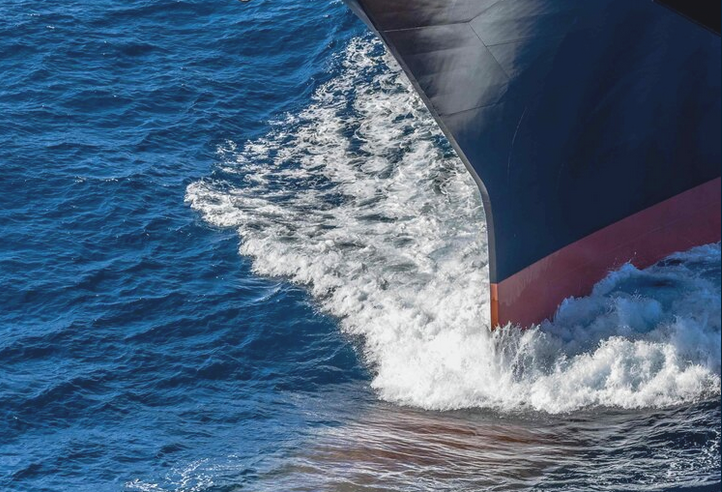(WASHINGTON) — On Thursday, President Joe Biden, joined at the White House by Rep. John Garamendi, D-Calif., Sen. Amy Klobuchar, D-Minn., Sen. John Thune, R-S.D., and Rep. Dusty Johnson, R-S.D., signed the Ocean Shipping Reform Act into law.
In August 2021, Garamendi introduced the act with Johnson to provide the Federal Maritime Commission (FMC) with the regulatory power to support American exporters, protect consumers, and establish reciprocal trade opportunities to reduce the nation’s longstanding trade imbalance with countries like China.
Klobuchar and Thune sponsored the companion legislation in the Senate.

“Today is the culmination of over a year of hard work to crack down on longstanding inequities for American exporters and shippers in the international ocean shipping industry,” Garamendi said. “It shows that Republicans and Democrats can come together to solve critically important problems. American families and small businesses are facing shortages and rising prices during the COVID-19 pandemic and Putin’s war in Ukraine. Our bipartisan Ocean Shipping Reform Act will protect American businesses and consumers from unfair trade practices and price gouging by foreign-flagged ocean liners and address our nation’s longstanding trade imbalance with countries like China.”
The Ocean Shipping Reform Act will:
• Require ocean carriers to certify that late fees — known in maritime parlance as “detention and demurrage” charges — comply with federal regulations or face penalties.
• Shift burden of proof regarding the reasonableness of “detention or demurrage” charges from the invoiced party to the ocean carrier.
• Require ocean common carriers to report to the FMC each calendar quarter on total import/export tonnage and 20-foot equivalent units (TEUs, loaded/empty) per vessel that make port in the United States.
• Authorize the FMC to self-initiate investigations of ocean common carrier’s business practices and apply enforcement measures, as appropriate.
• Establish a new authority for the FMC to register shipping exchanges.
Statement from President Biden:
“Lowering prices for Americans is my top priority, and I applaud the Congress for passing the Ocean Shipping Reform Act on a bipartisan basis, which will help lower costs for American retailers, farmers and consumers. I want to thank Sen. Klobuchar, Sen. Thune, Rep. Garamendi, and Rep. Dusty Johnson for their leadership and helping drive forward this important legislation.
“In my State of the Union address, I called on Congress to address ocean carriers’ high prices and unfair practices because rising ocean shipping costs are a major contributing factor to increased costs for American families. During the pandemic, ocean carriers increased their prices by as much as 1,000 percent. And, too often, these ocean carriers are refusing to take American exports back to Asia, leaving with empty containers instead. That’s costing farmers and ranchers — and our economy — a lot of money.
“This bill will make progress reducing costs for families and ensuring fair treatment for American businesses — including farmers and ranchers.”
Statement from the World Shipping Council:
“Recent weeks have seen several attempts to demonize ocean carriers by deploying ‘us versus them’ rhetoric. That is not only inaccurate but dangerous, as it undermines the ability to understand and work towards solving the root causes of America’s supply chain problems. Ocean carriers are the longest link in the global supply chain that delivers vital supplies to American business, government and consumers. The supply chain is not foreign; it is global.
“It is understandable that regulators ask questions with the current market conditions. Liner shipping is a very closely monitored industry, and carriers have answered and will continue to answer those questions. But the fact is that ocean carriers actively compete against one another in the global marketplace, including on the shipping lanes most relevant for U.S. trade.
“The expert U.S. regulator that oversees international shipping – the Federal Maritime Commission – just completed a two-year investigation into the international ocean supply chain, finding that ocean carrier competition is ‘vigorous’ and that while ocean freight prices are high, they are ‘exacerbated by the pandemic, an unexpected and unprecedent surge in consumer spending particularly in the United States, and supply chain congestion, and are the product of the market forces of supply and demand.’
“The FMC also stated that ‘Competition officials of the European Union, China, and the Federal Maritime Commission regularly discuss our ocean shipping markets and we have, to date, observed no indication that the current prices for liner shipping are a result of collusive or illegal conduct on the part of the major ocean carriers in our markets.’
“The worn-out talking point that ‘there’s only nine major ocean shipping lines who ship from Asia to the United States’ is also untrue. While nine lines in and of itself is evidence of competition and not concentration, there are an additional 13 ocean liner companies that operated over 30 percent of the sailings from Asia to the U.S. so far this year. In fact, competition increased during the pandemic, with new shipping services entering the market and the share of the largest alliances dropping.
“The FMC investigation also reports that ‘the individual ocean carriers within each alliance continue to compete on pricing and marketing independently and vigorously. Individual ocean carriers within alliances continue to add and withdraw vessels from trades both inside and outside the alliances in which they participate and, particularly in the transpacific, new entrants have been entering the trade. The trans-Pacific is a highly contestable market.’
“There is no dispute that carriers, after two decades of low or no margins and cheap and abundant capacity for shippers, are actually making profits. These profits are invested in building capacity for the future on land and sea. In 2021, carriers ordered a record-breaking 561 vessels worth $43.4 billion, and 208 vessels worth $18.4 billion have been ordered year-to-date in 2022. But as long as America’s ports, rail yards and warehouses remain overloaded and unable to cope with the increased trade levels, vessels will remain stuck outside ports to the detriment of importers as well as exporters. Ocean carriers continue to move record volumes of cargo for our country and have invested heavily in new capacity – America needs to make the same commitment and invest in its landside logistics infrastructure.”

